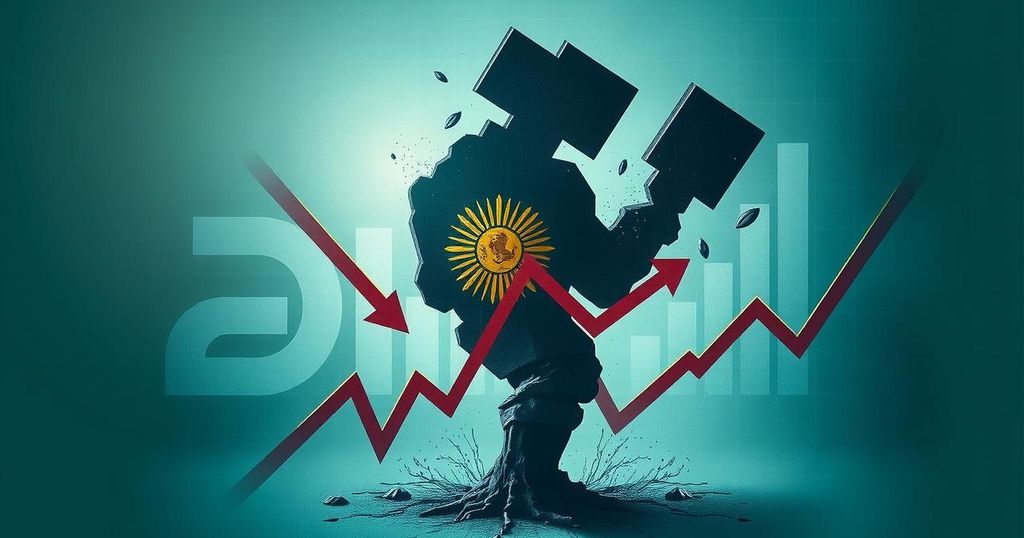Argentina’s Troubled Relationship with the IMF: A Historical Overview

Argentina’s history with the IMF is marked by multiple loans totaling $177 billion, including a new $20 billion program aimed at addressing severe economic crises. Critics argue past austerity measures exacerbated national crises. Current President Javier Milei’s reforms may offer a more favorable outcome than previous attempts, but public opinion remains divided on the implications of additional debt.
Argentina’s relationship with the International Monetary Fund (IMF) has been punctuated by historical turbulence. In December 1958, Argentina secured its first IMF loan of $75 million amidst inflation and dwindling reserves. The country now stands as the IMF’s largest debtor, having entered into numerous programs totaling $177 billion, including the most recent $20 billion agreement approved by the IMF board.
The current IMF program aims to alleviate Argentina’s severe economic crisis characterized by triple-digit inflation, low foreign currency reserves, stringent currency controls, and continuing recession. This partnership has been complex, dating back to a $57 billion deal in 2018 and another $44 billion in 2022 intended to manage previous debt that had not fulfilled its intended purpose of economic stabilization.
Criticism against the IMF is prevalent in Argentina, especially concerning the harsh austerity measures imposed during the 2001-2002 crisis, which many believe deepened the national economic turmoil. Myriam Bregman, a leftist lawmaker, condemned the IMF’s influence, asserting that many citizens are struggling due to spending cuts imposed by the current administration. Years of fiscal mismanagement across various administrations have necessitated recurrent IMF bailouts to stabilize the economy.
The IMF has acknowledged its missteps in addressing Argentina’s challenges, recognizing that its strategies did not yield the expected outcomes. Under President Javier Milei, a former economist, there is a conviction that reforms might yield more favorable results. Milei’s aggressive fiscal measures, which have already produced a surplus, are perceived as more rigorous than IMF stipulations, contributing to improved economic conditions and fluctuating inflation rates.
Historically, Argentina has oscillated between prosperity and crisis due to heavy reliance on international financial resources. Once among the wealthiest nations, it has recurrently depended on IMF assistance since the 1950s and thrived through a major bond restructure in 2020 to avert default. The country has turned to the IMF multiple times across decades, with each loan often linked to stringent economic reforms.
There is a divisive opinion among Argentinians regarding the recent IMF program; some view it as a positive sign of restored trust, while others express profound skepticism about accruing further debt. Maria Del Valle Romano remarked on the burden of past loans, reflecting a growing concern over the country’s increasing fiscal obligations.
Analysts, however, suggest that Milei’s reforms could align effectively with IMF requirements, possibly marking a departure from Argentina’s troubled history with the lender. Nicolás Saldías stated, “Milei is more IMF than the IMF – he doesn’t come empty-handed and has more than satisfied many of the Fund’s conditions.”
In summary, Argentina’s long-standing and troubled relationship with the IMF continues as the country embarks on another substantial loan program amidst severe economic challenges. Despite past criticisms and the history of failed reforms, there is cautious optimism surrounding President Milei’s commitment to market reforms and fiscal discipline. The outcome of this new arrangement remains to be seen, as public sentiment reflects both hope and skepticism regarding the implications of further borrowing.
Original Source: denvergazette.com








